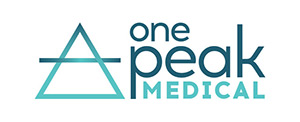Understanding Menopause and the Misleading Hormone Therapy Reputation
Let’s take this opportunity to talk about menopause, an important yet marginalized topic. The symptoms brought on by menopause affect roughly 85% of women, yet unfortunately, most go without any reprieve. In this blog, we will share symptoms associated with menopause, studies conducted on an effective treatment method for alleviating those symptoms, and how OnePeak Medical can help those suffering.
Recent studies have come to the surface regarding menopause and the shortage of care that women often receive. Rebecca Thurston, a professor of psychiatry at the University of Pittsburgh who studies menopause, considers it to be one of the great blind spots of medicine. In addition, a 2017 survey sent to medical residents across the country found that 20% of them had not heard a single lecture on menopause.
According to the National Institute on Aging (NIA), the menopausal transition most often begins for women between 45 and 55. It usually lasts about seven years but can last as long as 14. The duration of menopause often depends on lifestyle factors such as smoking, age of onset, race, and ethnicity. The symptoms from woman to woman vary but remain intrusive nonetheless. In this transition, some of the most consistent symptoms women experience are:
- irregular periods
- vaginal dryness
- hot flashes
- chills
- night sweats
- sleep problems
- mood changes
- weight gain
- slowed metabolism
So, with such high rates of impact and such a dense list of agonizing symptoms, is there any hope for relief? New research suggests so, and it’s called hormone therapy.
Hormone therapy was once the most commonly prescribed treatment in the United States. However, this changed in 2002 when a major study conducted by the Women’s Health Initiative (WHI) raised serious concerns revolving around its health risks, which in turn, caused many doctors and patients to abandon it as a treatment option altogether. While this study was undoubtedly important, it was also imperfect.
New analyses of the data from the study conducted in 2002 by the WHI and others have since concluded that the risks of hormone therapy are low for healthy women under 60. In fact, dozens of studies since 2002 have shown that the benefits of taking hormones outweigh the risks for healthy women under 60 whose hot flashes are troubling them. While there can be risks associated with hormone therapy, there are also potential risks with most, if not all, medications that work to relieve discomfort.
At OnePeak Medical, we understand that the reputation of using hormone therapy for menopausal symptoms hasn’t fully recovered. That said, we also understand the benefits and the results from the most recent, up-to-date studies. Unfortunately, if doctors aren’t discussing hormone therapy with their patients, it may be because of gaps in their knowledge.
We are committed to offering comprehensive care to empower all women to live full, healthy lives through each stage. If you are experiencing any symptoms caused by menopause, schedule an appointment with your provider. We will work with you during your appointment to determine if hormone therapy could provide you with comfort and relief.

